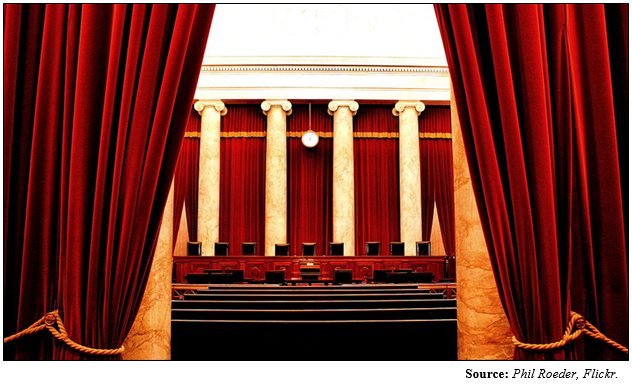By Natalia Castro
Each year on Independence Day, we celebrate the historic achievement our Founding Fathers made when they left an oppressive government to form a new country based around the principles of freedom. The Founding Fathers learned from the actions of their previous government and, after outlining the principles of equality and justice in the Declaration of Independence, created a new government which protected every individual’s right to “life, liberty, and the pursuit of happiness.” Today, we cannot forget why our Founding Fathers left their previous government and why we must continue protecting our liberties with a Supreme Court candidate who sees the value in individual freedom as much today as our Founding Fathers did over 200 years ago.
Pilgrims boarded the Mayflower in search of religious freedom.
English common law made criticizing the government in print a crime in the colonies.
In 1733, Joh Peter Zenger was arrested for writing critical articles against the British Governor of New York.
Before the Revolutionary War, the British placed a ban on imported firearms and gunpowder.
These are only some examples of the very reasons our Founding Fathers desired independence. These are also some of the reasons why the Bill of Rights was crafted into our Constitution. As Thomas Jefferson noted in December 1787, “[A] bill of rights is what the people are entitled to against every government on earth, general or particular, and what no just government should refuse.”
The concept was simple; we must create a government that cannot limit the basic rights of the people because this is the slippery slope to limiting all of the rights of the people.
All too often on my college campus, I hear students claim the principles of our Founding Fathers are “outdated” and that constitutionalists are simply “living in the past.” But as former President Ronald Reagan once said, “Freedom is never more than one generation away from extinction. We did not pass it to our children in the bloodstream.”
In this last Supreme Court term, we saw attacks on freedom of religion, freedom of speech, freedom of association, and many more. Meanwhile, policy objectives on the left include bans on certain firearms and limiting an individual’s ability to defend themselves freely.
There is always an adversary looking to limit freedom, and our surest line of defense is the Constitution.
The American people must realize that had the Supreme Court forced the Masterpiece Cakeshop in Colorado to design a cake for a gay couple despite their religious objection; there would be no stopping a group from forcing a Jewish company to design Nazi propaganda. The freedom to practice one’s religion freely would be removed; the exact reason pilgrims traveled to this new land.
Similarly, the Supreme Court ruling in Janus v. AFSCME ensures government employees do not have to pay into unions that do not represent them, protecting the right of every individual to speak for themselves and not be forced into association with a group they do not believe in. The right to speak critically of any group without fearing repercussions has the same basis today as it did in colonial America.
The limitation, even in a small way, of any individual right creates an easy slope toward limiting all our rights.
Being a constitutionalist does not mean defending the Republican Party, it means defending freedom, just like our Founding Fathers did generations before us. They knew the government would not be perfect, but they believed in the people’s freedom to pursue perfection in their own lives.
When looking for our next Supreme Court justice, President Trump must look toward an individual who upholds the principles of individual liberty. This basic idea was the foundation of the Declaration of Independence and must continue to be the foundation of our country.
Natalia Castro is a contributing editor at Americans for Limited Government.







